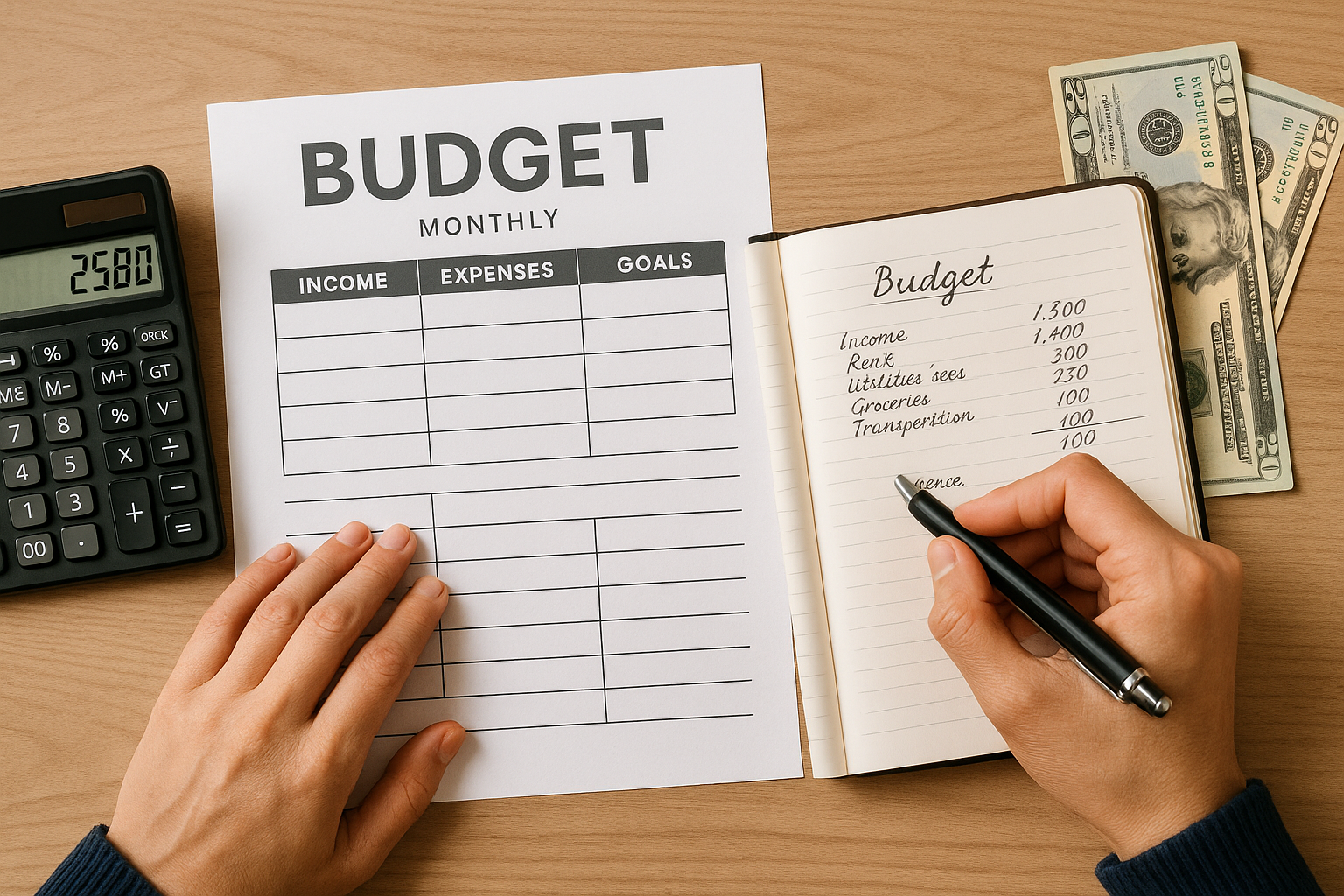Creating and maintaining a budget is one of the most important habits anyone can develop when it comes to money management. Despite this, many people underestimate the power of budgeting or avoid it altogether due to the misconception that it’s too restrictive or complicated.
In this article, we’ll break down what a budget really is, why it’s essential to your financial success, and how you can easily create one that works for your lifestyle and goals.
Understanding the Basics: What Is a Budget?
At its core, a budget is simply a plan for your money. It outlines how much money you expect to earn (your income) and how you plan to spend and save it (your expenses).
Budgets help you:
- See exactly where your money goes
- Make intentional financial decisions
- Avoid overspending
- Set and reach short- and long-term financial goals
- Prepare for emergencies and unexpected expenses
A budget isn’t about restriction—it’s about control. It empowers you to take charge of your financial future rather than just reacting to financial stress.
Why So Many People Avoid Budgeting
Even though budgeting has many clear benefits, some people shy away from it. Here are common reasons why:
- “I don’t earn enough to need a budget.”
The truth is, a budget is even more important when funds are limited. - “I’m afraid to see how bad things are.”
Avoidance won’t fix your finances. A budget gives you clarity and a path forward. - “Budgeting is too complicated.”
With the right tools, it’s simple. You don’t need to be a math whiz. - “Budgets are too restrictive.”
A good budget leaves room for fun while prioritizing financial health.
Understanding these mental blocks is the first step to overcoming them.
How Budgeting Improves Your Financial Life
Let’s take a look at specific ways a budget makes life better.
1. Helps You Live Within Your Means
A budget prevents overspending by setting clear limits. You’re less likely to rely on credit cards or go into debt when you’re aware of your financial boundaries.
2. Enables You to Save Intentionally
Without a plan, saving becomes an afterthought. With a budget, you can prioritize saving for emergencies, future purchases, and long-term goals like retirement.
3. Reduces Stress and Financial Anxiety
Knowing that your bills are covered and your savings are growing provides peace of mind. Budgeting removes the guesswork and panic from money management.
4. Helps You Pay Off Debt
Budgeting lets you allocate specific amounts to debt repayment and track your progress. It also keeps you from adding new debt through better spending awareness.
5. Encourages Smart Spending
When you know where your money goes, you’re more likely to spend it on things that truly matter. Impulse purchases become less tempting when you see their impact on your goals.
Step-by-Step: How to Create Your First Budget
Ready to start budgeting? Here’s a beginner-friendly process that works.
Step 1: Determine Your Net Income
This is the total money you bring home after taxes and deductions. If you’re self-employed, calculate your average monthly income.
Step 2: List Your Monthly Expenses
Break them into two categories:
- Fixed expenses: Rent, utilities, internet, insurance, loan payments
- Variable expenses: Groceries, transportation, dining, entertainment, shopping
Step 3: Track and Categorize Past Spending
Review the last 1–3 months of bank and credit card statements to understand your current spending habits. This gives you a realistic baseline.
Step 4: Set Spending Limits by Category
Assign a portion of your income to each expense category. Prioritize necessities first, then allocate money to savings, debt repayment, and discretionary spending.
Step 5: Choose a Budgeting Method
There are several popular budgeting methods. Pick one that suits your lifestyle:
- Zero-based budgeting: Every dollar is assigned a job (savings, expenses, etc.)
- 50/30/20 rule: 50% needs, 30% wants, 20% savings/debt
- Envelope system: Cash is placed in physical or digital “envelopes” for each category
Step 6: Use Tools to Stay Organized
You can use:
- Apps like Mint, YNAB, or PocketGuard
- Spreadsheets with simple formulas
- Paper planners for visual tracking
Step 7: Review and Adjust Monthly
Your budget isn’t set in stone. Review it regularly to adjust for life changes like a new job, moving, or new financial goals.
Common Budgeting Mistakes to Avoid
Even with the best intentions, it’s easy to go off track. Watch out for these pitfalls:
- Forgetting irregular expenses (like annual renewals or birthdays)
- Underestimating certain categories (like groceries or fuel)
- Not tracking your spending consistently
- Making your budget too rigid or unrealistic
Flexibility is key—adjust your budget as you learn more about your habits and needs.
Budgeting for Different Life Stages
Your budget will change based on your life situation. Here’s how to adapt:
- Young professionals: Focus on building emergency savings, paying off student loans, and investing early.
- Families: Include savings for education, home expenses, and long-term family planning.
- Seniors or retirees: Prioritize predictable income, healthcare, and low-risk investments.
No matter where you are in life, budgeting helps you plan wisely and avoid financial surprises.
Building a Positive Relationship with Money
Budgeting isn’t just about numbers—it’s about values. When you create a budget aligned with what matters most to you, money becomes a tool to support your life, not a source of stress.
You gain confidence, clarity, and freedom.
Conclusion: Budgeting Is the Foundation of Financial Wellness
Whether your goal is to eliminate debt, build wealth, or simply stop worrying about money, a budget is your strongest ally. It doesn’t take hours to manage, and it doesn’t mean you’ll never have fun again.
Quite the opposite—it ensures that you spend on what truly matters to you, with intention and purpose.
Start simple, be patient with yourself, and celebrate progress. Your future self will thank you for the steps you take today.

